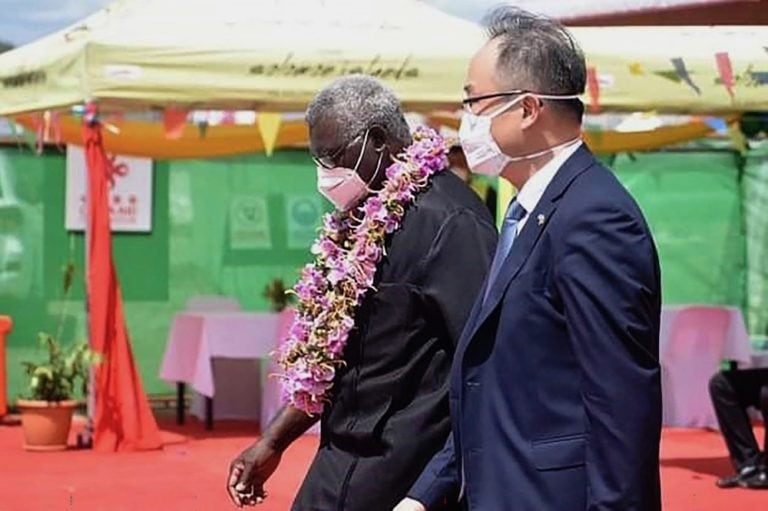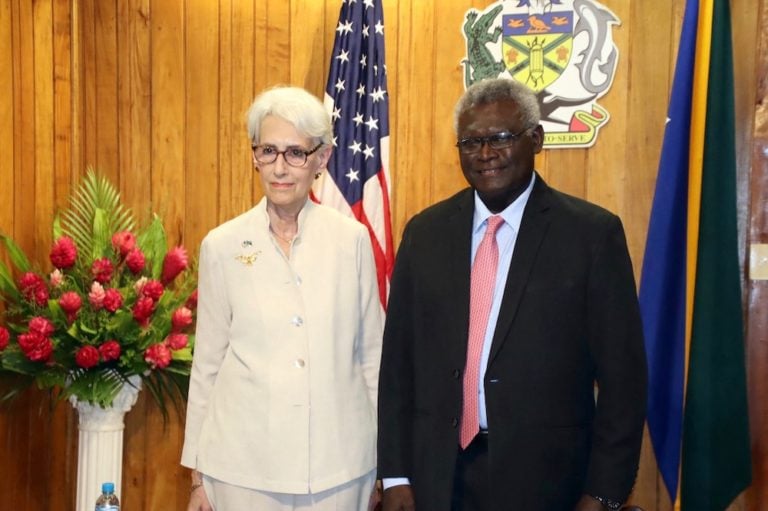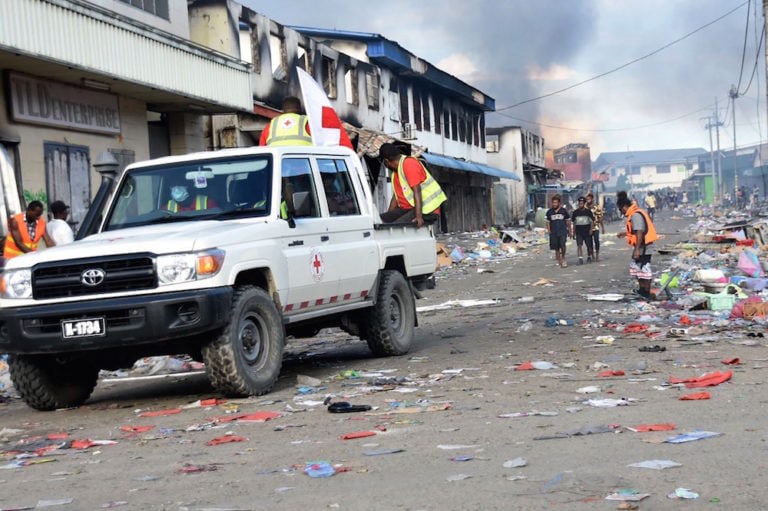(PINA/IFEX) – On 14 July 1999, the Commonwealth Special Envoy to the Solomon Islands, Sitiveni Rabuka, urged the Solomon Islands Government to end state-of-emergency restrictions imposed on the news media. Rabuka, the former Fiji Islands prime minister, told the Solomon Islands Broadcasting Corporation that the media is vital in informing people of the progress being […]
(PINA/IFEX) – On 14 July 1999, the Commonwealth Special Envoy to the Solomon
Islands, Sitiveni Rabuka, urged the Solomon Islands Government to end
state-of-emergency restrictions imposed on the news media. Rabuka, the
former Fiji Islands prime minister, told the Solomon Islands Broadcasting
Corporation that the media is vital in informing people of the progress
being made by the government on a peace accord to end ethnic conflict.
Rabuka stressed that the media is also a tool for the government to gauge
the reaction from its citizens on the peace initiative.
**Updates IFEX alerts of 7 July, 5 July, 2 July, 30 June and 3 February
1999**
Rabuka was sent to the Solomon Islands by the Commonwealth Secretariat in a
bid to help end the conflict on the country’s main island, Guadalcanal. Two
weeks ago he brokered the peace agreement between the government and a
Guadalcanal militant movement trying to drive out people who come from
another large island.
Rabuka said he would encourage the Solomon Islands Government of Prime
Minister Bartholomew Ulufa’alu to lift the state of emergency regulations as
soon as possible to help in the process of achieving normalcy on
Guadalcanal. He told the Solomon Islands Broadcasting Corporation that
Solomon Islanders could gain confidence in the peace process if the
regulations were lifted.
Background Information
On 6 July 1999, PINA urged the Solomon Islands Government to lift
restrictions imposed on the media under the state of emergency. PINA said
these restrictions date from colonial times and are not appropriate for a
modern democracy. PINA said it is sad to see media restrictions like this
imposed in a country which has one of the best records of media freedom in
the region.
Open debate and clear credible communication are essential in times of
national disaster or civil unrest, it said. Remove it and the media are
replaced by rumour and speculation which can only make matters worse, PINA
said.
On 28 June 1999, the Solomon Islands Government introduced emergency powers
restricting media reporting. Those convicted of breaching the emergency
restrictions can be jailed for up to two years and fined up to $Solomons
5,000 (approx. US$1,035). The restrictions forbid printing, broadcasting or
communicating information which incites violence or is likely to cause
racial or communal disharmony. They also forbid printing, broadcasting or
communicating information “prejudicial” to the safety or interests of the
state, or likely to cause “disaffection” with the government, or “hatred of
contempt” for the administration of justice or national security. The powers
also restrict the printing, broadcasting or communicating of information
from official documents.
Guadalcanal is where Honiara, the Solomons Islands capital, is located. The
Guadalcanal militant movement is trying to drive out people who come from
another major island, Malaita. The movement is claiming that Malaitans
dominate government and business and are increasingly occupying the lands of
the Guadalcanal people. Thousands of Malaitans have fled back to Malaita
following a series of attacks by the militants. Honiara became the capital
of the then British Solomon Islands after Word War II. It grew from a base
and port built by United States forces during the battle to retake the
Solomon Islands from the Japanese.


